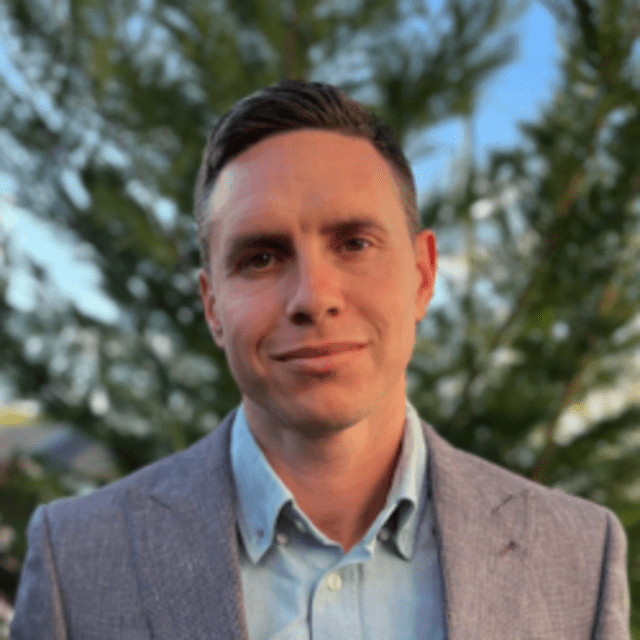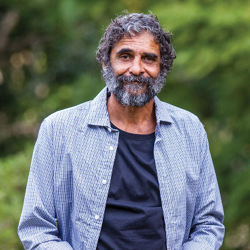2024 UQ School of Social Science Postgraduate Conference - Decolonial encounters: valuing and embracing diverse knowledges and territories
Venue
The University of Queensland's School of Social Science invites you to attend our 2024 Postgraduate Conference.
The conference theme, Decolonial encounters: valuing and embracing diverse knowledges and territories, is an invitation to reflect on how we have been practising and conducting our research and the myriad possibilities of understanding territories. How do we value and incorporate the knowledge of the communities we study? What counts as territory, and how is it represented in our research? How do we challenge the coloniality of knowledge and rethink our citation practices? These are some of the questions driving the activities and presentations at the conference.
The Organising Committee invite everyone to enjoy a day of reflections on these themes through walking and listening to Aboriginal people and engaging with the varied research presentations.
Program
8am | Preconference activity: Aboriginal culture and history of the St Lucia area walking tour Enjoy learning about the Aboriginal culture and history of the St Lucia area with Aboriginal scholar Alex Bond on a walking tour around The University of Queensland lakes. (Limited spots available) |
9:45am | Registration – Morning tea |
10:15am | Opening |
10:30am | First session – Gender and body |
11:45am | Break |
11:55am | Second session – Housing and homelessness |
1pm | Lunch break |
2pm | Third session – Place and Ecologies |
3:20pm | Afternoon tea |
3:40pm | Fourth session - Socio-economic impacts on marginalised communities |
5pm | Break |
5:10pm | Keynote speaker: Joshua Waters |
6:10pm | Drinks and networking |
View full program and abstracts
Keynote Speech, presented by Joshua Waters
Indigenous spiritualities are an inseparable part of the Aboriginal and Torres Strait Islander experience and worldview. For many-tens-of-thousands-of-years First Nations peoples in Australia have modelled their societies around multilayered interdimensional ontologies which give presence and meaning to their human experience. In the context of Indigenous research, however, colonial structures and post-enlightenment theories generate and perpetuate rigid barriers to their inclusion, compromising the health, safety, and wellbeing of Indigenous researchers involved in research projects across the country. Australian Universities and their ethics processes in this regard, do not often enough account for Indigenous spiritual and cultural experiences, such as spiritual protection, wellbeing, and harm, reflecting the broader impacts of settler-colonialism, structural racism, and religious exclusion along with their ongoing effects on Indigenous spiritual systems of knowledge both in institutions and in Aboriginal communities. Overbearing encounters with colonialism subsequently impinge on Indigenous worldviews in ways that recapitulate dominant values, further marginalising Indigenous worldviews and epistemologies, all the while neglecting responsibilities to uphold a level of spiritual care.
By examining how post-enlightenment theories and perspectives influence processes within Indigenous research, along with the limitations of Western colonial frameworks on Indigenous spiritualities, this presentation seeks to conceptualise the notion of ‘spirit’ in global and Australian Indigenous research, while nurturing deeper understandings of the importance of Indigenous spiritualities when promoting inclusive research practices that foster Indigenous spiritual health, wellbeing, and self-determination. Finally, an emergent theory of extended relatedness will be introduced, focusing on the collective power of Indigenous communities to determine and select for relationships that harness spiritual energy within an economy of care, trust, and mutual respect over time. Emphasis is provided for ‘gifts’ of entanglement, which are an inherent component of Indigenous research and Indigenous community values worldwide, and which illustrate the potential for responsible research practices grounded in Indigenous ontologies and spiritualities.
Special Guests
Joshua Waters
 Joshua Waters is a First Nations K/Gamilaroi man, PhD student and Senior Research Fellow with the School of Humanities and Social Sciences at Deakin University. He is also a core member of Deakin University's Indigenous Knowledge Systems (IKS) Lab and a Director of the Indigenous Knowledge Systems Collective (IKSC), where he supports a number of regional, national and international partnerships and research projects aimed at utilising Indigenous knowledges and complexity for global systems innovation and change.
Joshua Waters is a First Nations K/Gamilaroi man, PhD student and Senior Research Fellow with the School of Humanities and Social Sciences at Deakin University. He is also a core member of Deakin University's Indigenous Knowledge Systems (IKS) Lab and a Director of the Indigenous Knowledge Systems Collective (IKSC), where he supports a number of regional, national and international partnerships and research projects aimed at utilising Indigenous knowledges and complexity for global systems innovation and change.
His work explores the critical role of Indigenous Knowledges in global higher education and institutional contexts. His past research examines the key convergences between Indigenous Knowledge Systems (IKS) and natural systems combined with Western scientific domains by using land-based pedagogical approaches to inform methodology, theory development and solution-finding to global complex challenges and socio-political problems.
Alex Bond
 Alex Bond strongly identifies as a member of the Kabi Kabi people of south-east Queensland, but also has descent links with the Waka Waka (Burnett River) and Kaanju (Cape York) and Kumu (Dirranbandi) peoples. He has an extensive knowledge base on Aboriginal culture and history in South-East Queensland. Alex is regularly employed at the Aboriginal Environments Research Collaborative (The University of Queensland) for community-oriented projects. He is also a casual tutor and research assistant at the Collaborative and conducts guided tours of the Aboriginal cultural landscape in the Brisbane CBD for UQ students of anthropology, human geography and architecture. He has been conducting cultural landscape tours since 2011 and is passionate about sharing his cultural knowledge. In his spare time, Alex loves busking and playing his guitar.
Alex Bond strongly identifies as a member of the Kabi Kabi people of south-east Queensland, but also has descent links with the Waka Waka (Burnett River) and Kaanju (Cape York) and Kumu (Dirranbandi) peoples. He has an extensive knowledge base on Aboriginal culture and history in South-East Queensland. Alex is regularly employed at the Aboriginal Environments Research Collaborative (The University of Queensland) for community-oriented projects. He is also a casual tutor and research assistant at the Collaborative and conducts guided tours of the Aboriginal cultural landscape in the Brisbane CBD for UQ students of anthropology, human geography and architecture. He has been conducting cultural landscape tours since 2011 and is passionate about sharing his cultural knowledge. In his spare time, Alex loves busking and playing his guitar.
